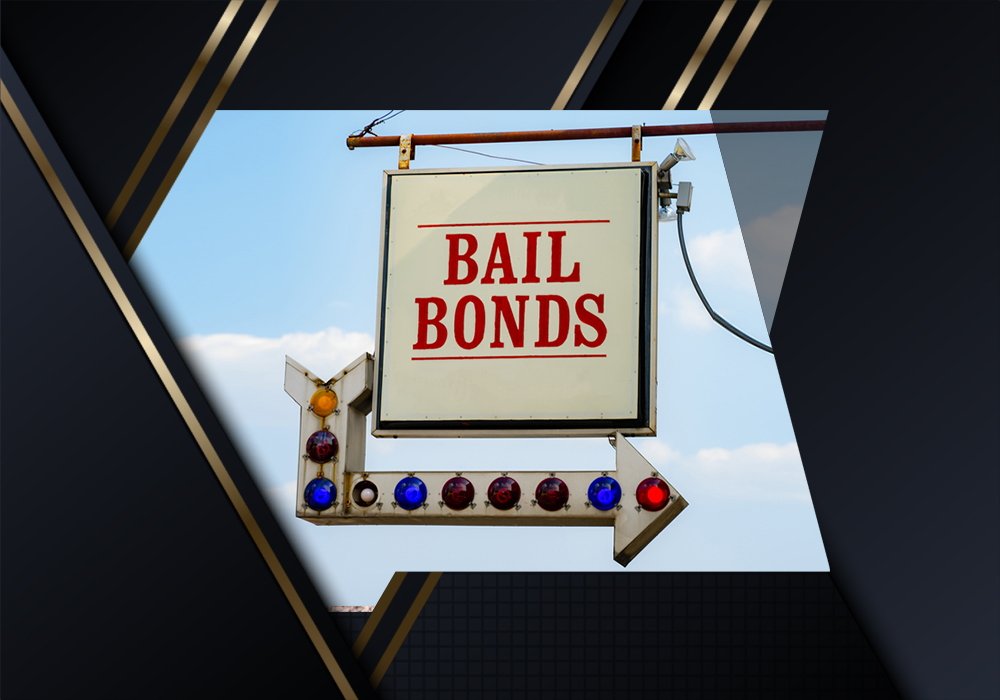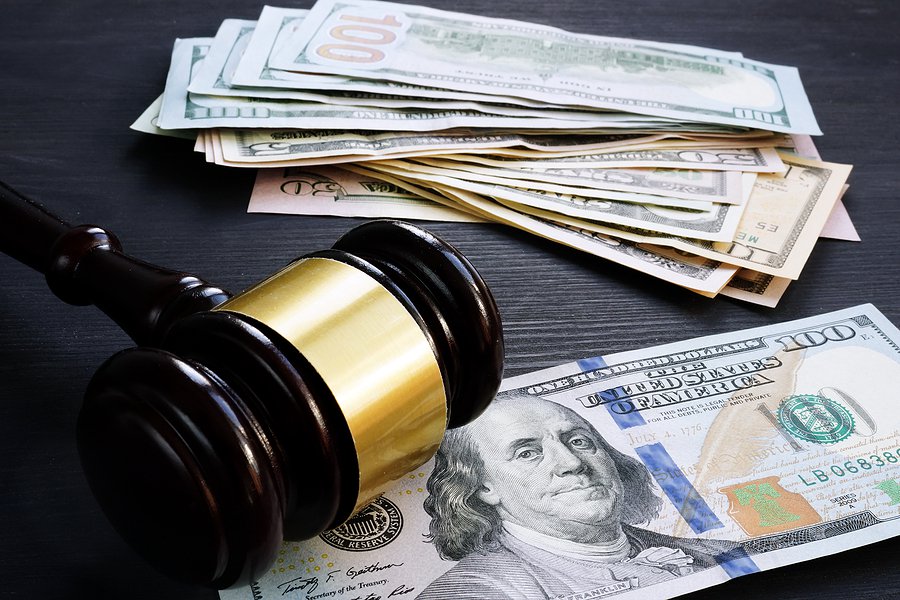Understanding the Process of Protecting a Bail Bond: What You Required to Know
Protecting a bail bond can be an intricate process. It includes understanding numerous facets, from the sorts of bonds available to the linked prices. People often forget vital information that can impact their situation. The steps to acquire a bail bond require mindful factor to consider and understanding of obligations. As the procedure unfolds, important decisions have to be made that can affect the end result significantly. What should one anticipate when traversing this challenging landscape?
What Is a Bail Bond?
A bail bond is an economic contract that allows an arrested individual to be launched from custodianship while awaiting test. This arrangement includes a 3rd celebration, normally a bondsman, that ensures the court that the person will certainly return for their scheduled court looks. In exchange for this service, the bondsman typically charges a non-refundable fee, usually a percent of the overall Bail quantity.
Bail bonds serve a crucial function in the lawful system, supplying a system for defendants to keep their liberty during the pre-trial stage. This can assist them prepare for their defense better. The Bail amount is figured out by the court based on various variables, including the extent of the crime, the accused's criminal background, and the threat of flight. Ultimately, a bail bond represents a commitment to promote lawful responsibilities while permitting individuals the opportunity to continue their daily lives up until their court day.
How Bail Bonds Job
Bail bonds operate with an uncomplicated procedure that entails several essential actions. A defendant or their depictive calls a bail bond agent after an apprehension. The agent analyzes the circumstance, including the Bail quantity established by the court and the defendant's history. When a choice is made, the representative normally needs a non-refundable cost, normally a percent of the overall Bail quantity, commonly ranging from 10% to 15%.
After the cost is paid, the representative secures the Bail by authorizing an agreement with the court, making sure that the defendant stands for all set up court days. If the defendant falls short to appear, the bail bond representative is in charge of the complete Bail quantity, leading the representative to look for out the defendant. Throughout this process, the bail bond representative plays a vital duty in promoting the release of the accused while managing the associated monetary threats.
Kinds Of Bail Bonds
Comprehending the numerous kinds of Bail bonds is crucial for offenders and their households as they navigate the legal system. There are several common kinds of Bail bonds offered, each offering a certain objective.
One of the most common is the surety bond, which includes a bondsman guaranteeing the full Bail quantity in exchange for a fee. An additional kind is the cash bond, where the defendant or their family members pays the full Bail amount in money directly to the court.
Residential or commercial property bonds allow individuals to make use of realty as security for the Bail amount. In addition, federal bonds are specific to federal instances, frequently requiring a higher premium and a lot more strict problems.
Finally, migration bonds are made use of in situations concerning immigration infractions. Each kind of bond has unique procedures and implications, making it vital for those included to comprehend their options extensively.
The Costs Entailed in Securing a Bail Bond
Safeguarding a bail bond requires different costs that can considerably impact an offender's finances. The major cost is the costs, normally ranging from 10% to 15% of the overall Bail quantity established by the court. This premium is non-refundable, no matter the case end result, representing the bail bond agent's charge for their solutions. Additional expenses might include management charges, which some representatives enforce for processing documentation, and collateral needs, where the accused might need to supply properties to secure the bond. In cases including greater Bail amounts, the need for collateral becomes more noticable. bail bonds. Furthermore, offenders must know potential prices connected to missed court days, which can lead to further monetary fines. Understanding these expenses is vital for offenders and their family members, as they can greatly affect the monetary burden related to securing a bail bond
The Process of Getting a Bail Bond
The procedure of obtaining a bail bond entails a series of structured actions that start with the entry of an application. Candidates have to also take into consideration numerous settlement and security alternatives that might be called for by the bail bond agency. Understanding these components is vital for navigating via the bail bond system effectively.
Application Submission Steps
Steering the application entry actions for acquiring a bail bond can be simple when people are knowledgeable. The initial action entails choosing a trustworthy bail bond business, which typically calls for study and recommendations. When a business is selected, the applicant needs to finish a bail bond application, supplying necessary information such as the accused's details, charges, and Bail amount. Next off, the candidate might need to existing recognition and any type of pertinent documents to support the application. After sending the application, the bail bond business will certainly assess the information and analyze the risk entailed. If approved, an agent will detail the terms and conditions prior to wrapping up the agreement. This process, while methodical, can differ a little depending upon the Bail and the jurisdiction bond firm.

Repayment and Security Options
When acquiring a bail bond, understanding settlement and security options is necessary, as these factors can substantially impact the general cost and regards to the arrangement. Typically, bail bond companies call for a non-refundable fee, normally a percentage of the complete Bail quantity, which acts as their revenue. Some firms might provide versatile settlement plans, permitting customers to pay in installations. Additionally, collateral can be needed to secure the bond, which might include assets like residential property, cars, or other valuables. The type and value of collateral can influence the bond's authorization and terms. Customers need to very carefully assess their monetary situation and options to guarantee they choose an option that straightens with their budget plan and circumstances.
Obligations of the Indemnitor
Guiding via the complexities of Bail bonds requires a clear understanding of the duties of the indemnitor. The indemnitor, typically a family member or close friend of the offender, plays a significant role in the Bail process. This individual agrees to assume economic liability, making certain that the Bail quantity is paid if the website offender falls short to show up in court. It is necessary for the indemnitor to preserve communication with the bail bond agent throughout the process, providing any essential details and updates pertaining to the defendant's scenario.
In addition, the indemnitor needs to protect collateral, which may include building or prized possessions, to back the bail bond. This collateral safeguards the bail bond company against prospective losses - bail bonds. Should the accused stop working to adhere to court mandates, the indemnitor faces the danger of shedding their security and might be held responsible for the entire Bail amount. As a result, understanding these obligations is essential for the indemnitor's financial stability

Common Misconceptions About Bail Bonds
Many people nurture misunderstandings concerning Bail bonds, which can complicate their understanding of the Bail process. One common myth is that Bail bonds are a form of settlement that ensures an accused's release. In fact, they are a warranty to the court that the defendant will stand for their arranged hearings. An additional usual idea is that just affluent individuals can afford Bail. Bail bondsmen typically bill a percentage of the complete Bail amount, making it obtainable to a more comprehensive variety of people. Furthermore, some individuals believe that Bail is refundable. While the costs paid to the bondsman is not refundable, the Bail quantity itself might be returned upon the completion of the instance, gave the offender meets all court demands. Resolving these misconceptions is essential for individuals traversing the complexities of the Bail system and guaranteeing they make notified choices.
Often Asked Inquiries
Can I Secure a Bail Bond for A Person in An Additional State?
Safeguarding a bail bond for a person in an additional state is feasible, however it commonly needs working with a Bail bondsman certified in that state - bail bonds. Each territory has certain regulations that have to be complied with during this process
What Takes place if the Offender Skips Bail?
If an offender skips Bail, a warrant is normally released for their arrest. The bondsman may additionally seek recovery initiatives, which could include working with bounty seekers to find and nab the individual.
Are Bail Bondsmen Regulated by the Government?
Bondsman are undoubtedly controlled by federal government authorities. Rules differ by state, but they usually call for licensing, adherence to monetary methods, and conformity with regulations to guarantee fair treatment of defendants and their families.
Can I Make Use Of Collateral Other Than Money?
Security besides cash money can commonly be utilized for Bail bonds, relying on the Bail bondsman's policies. Usual options include home, cars, or various other beneficial properties, which have to normally be assessed and set.
What Is the Duty of a Co-Signer in a Bail Bond?
The role of a co-signer in a bail bond is to ensure payment if the accused fails to show up in court. This private approves economic obligation, guaranteeing that the bail bond arrangement is promoted and enforceable.
If the accused stops working to show up, the bail bond agent is accountable for the full Bail quantity, leading the representative to look for out the offender. Once a company is picked, the applicant must complete a bail bond application, offering crucial information such as the defendant's details, costs, and Bail quantity. Generally, bail bond firms require a non-refundable cost, generally a percent of the total Bail amount, which serves as their revenue. Several people nurture misconceptions regarding Bail bonds, which can complicate their understanding of the Bail procedure. Collateral various other than cash can often be utilized for Bail bonds, depending on the Bail bondsman's plans.